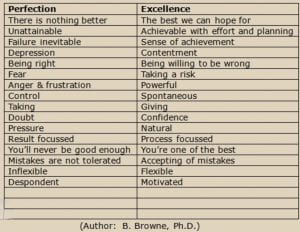Any author will tell you that errors in their final work are the scourge of editing. But, embrace them! Why? Simply because they make your work more valuable! “Really?” you, may ask. “How?” An example from 3 WISE MEN will illustrate this.
When I received the final formatted version and launched it (version 1), I had the chance to sit and review the Kindle copy in just a few sittings. It may have been the fresh eyes, or the extra coffee, or the fact that I was on holiday, but, to me, there were too many “flaws” to be entirely happy with it; and so I did a few minor, but significant changes – changes that improved the flow and avoided repetitious phrases, etc. These changes should have been picked up during the professional editing phase. However, with the new product in front of me, I was now much more critical of the text, the characters, and the more subtle elements of style. These draft copies are the rarest and most valuable ones and they expose the weakness of self-publishing for all to see. But, they also serve as examples of the hidden power of self-publishing – the ability of an author to have a far better product in front of readers within a day or two! The alterations may have not seemed necessary but, to me, they certainly were. After a short period of rigorous review the book – version 2 – was longer by a few more pages too!
“Are you happy with it now?” asked my wife. “Yes, it is good to go!” I announced proudly as I ordered 10 “Author copies.” A few more Kindle ones were also purchased by others during our low key marketing campaign to family and friends. Then, behold, a keen reader spotted a very minor – and I mean minor – mistake. But, it was unacceptable and it was on page one! It took less than a few hours to have the correction and reformatting done. A day later, it was online ready to purchase. This (version 3 or 4) will be used at the book launch.
So, will there be any further changes? Perhaps, but I would expect them to be too subtle to really matter. For instance, the title on the front cover might move down a few millimetres, and I might alter a small amount of inside text, and perhaps add a short author bio. But don’t expect anything as major as the alterations from version 1 to version 2. The former are now – like really early collectables – super rare versions without any value. But, from a writing viewpoint, they are priceless examples of a major stepping stone in the journey of a flawed author!
 Hello again. I was discussing some of the presentations at a recent writers conference with a good friend who attended. He brought up the notion of perfection in writing vs excellence. The aim was to have writers concentrate on excellence and not try to be perfectionists. Writers should feel safe to make mistakes and be innovative. Which then begs the question, what is excellence in writing? I’m not a 100% sure myself. Some say it’s the point where you cannot improve on the story, plot, characters, etc. I agree, but I’m going to stick my writer’s neck out and also suggest that the manuscript being submitted needs to be free of obvious errors, grammatical mistakes, etc. If it isn’t it will be a turn-off for any literary agent or, in the case of self-published work, a negative experience for the reader.
Hello again. I was discussing some of the presentations at a recent writers conference with a good friend who attended. He brought up the notion of perfection in writing vs excellence. The aim was to have writers concentrate on excellence and not try to be perfectionists. Writers should feel safe to make mistakes and be innovative. Which then begs the question, what is excellence in writing? I’m not a 100% sure myself. Some say it’s the point where you cannot improve on the story, plot, characters, etc. I agree, but I’m going to stick my writer’s neck out and also suggest that the manuscript being submitted needs to be free of obvious errors, grammatical mistakes, etc. If it isn’t it will be a turn-off for any literary agent or, in the case of self-published work, a negative experience for the reader.
 Maggie Shipstead (left) writes, “John Gardner famously wrote that fiction should be a “vivid, continuous dream,” but some readers’ willingness to dream is more robust than others. Some people will shut a book forever at the first sign of an error, their trust in the writer and their suspension of disbelief irrevocably lost. Others will happily read along through almost anything, swallowing the most preposterous plot points, the most egregious anachronisms, and the most glaring inconsistencies…But I think sloppiness is worth trying to avoid, both out of pure principle (why get something wrong when you could get it right?) and because mistakes can be indicative of an author not pressing hard enough on the world she’s building, not making it sturdy enough, settling for a facade.” In her
Maggie Shipstead (left) writes, “John Gardner famously wrote that fiction should be a “vivid, continuous dream,” but some readers’ willingness to dream is more robust than others. Some people will shut a book forever at the first sign of an error, their trust in the writer and their suspension of disbelief irrevocably lost. Others will happily read along through almost anything, swallowing the most preposterous plot points, the most egregious anachronisms, and the most glaring inconsistencies…But I think sloppiness is worth trying to avoid, both out of pure principle (why get something wrong when you could get it right?) and because mistakes can be indicative of an author not pressing hard enough on the world she’s building, not making it sturdy enough, settling for a facade.” In her